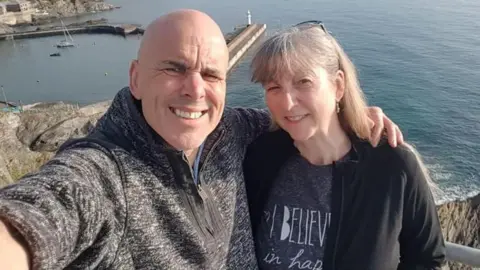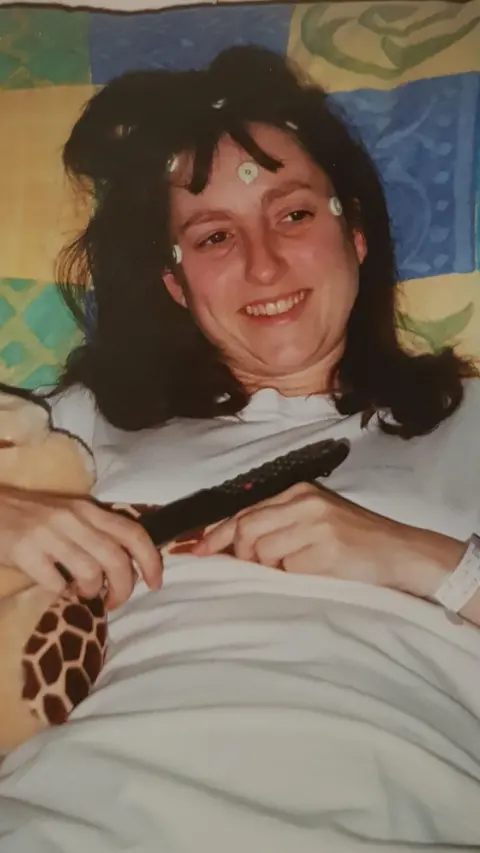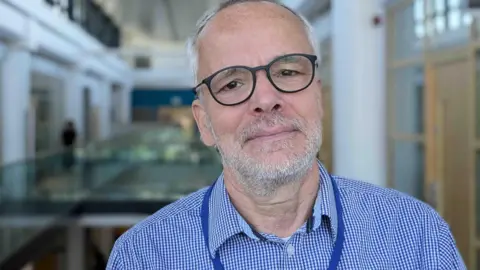Woman's hopes for brain tumours breakthrough
 Brain Tumour Research Centre of Excellence
Brain Tumour Research Centre of ExcellenceA Cornish woman is hoping a drugs trial may lead to a breakthrough in the treatment for multiple brain tumours.
Jayne Sweeney, 57, from Mevagissey was diagnosed in 1996 with neurofibromatosis 2 (NF2), a genetic condition which causes tumours to grow along nerves.
University of Plymouth researchers want to build on findings that show HIV and Aids medicines ritonavir and lopinavir can shrink tumours.
“A cure for NF2 is too late for me, but if we can find an effective drug for people newly diagnosed, that would be fantastic," Mrs Sweeney said.
 Brain Tumour Research Centre of Excellence
Brain Tumour Research Centre of ExcellenceThere are no current treatments for non-cancerous NF2, which affects about one in 25,000 to 40,000 people, other than surgery.
Twelve people are taking part in clinical trials.
Mrs Sweeney, who has been invited onto the trial steering group, has 12 tumours growing in her brain and has had five operations to remove tumours from her brain, ear and ankle.
She has also undergone 15 months of chemotherapy and surgery, with painful injections into her head.
Loss of balance, hearing loss and ringing in the ears as well as limb weakness and persistent headaches are symptoms of NF2.
"For me, the loss of hearing is the worst thing about having NF2 because it’s very isolating and frustrating," she said.
"Finding better and kinder ways to treat the disease is so important," she said.
 Brain Tumour Research Centre of Excellence
Brain Tumour Research Centre of ExcellenceProfessor Oliver Hanemann from the Brain Tumour Research Centre of Excellence at the university, said: "If results are positive and the research develops into a larger clinical trial, it would be the most significant change for patients with this condition."
During the year-long trial, patients will undergo a tumour biopsy and blood test before having 30 days of treatment with the two medicines.
They will then have another biopsy and blood test to see whether the drugs have managed to enter tumour cells and shrink the tumours.
Follow BBC Devon on X (formerly Twitter), Facebook and Instagram. Send your story ideas to [email protected].
